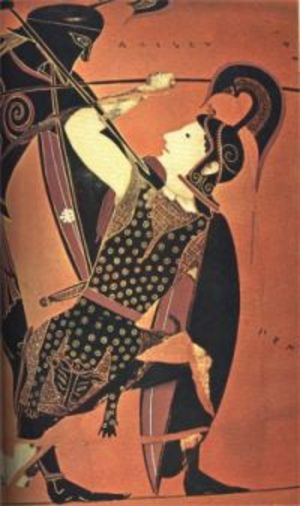The epic poem is one of the earliest and most enduring forms of literature in our history. The first works of fiction in recorded history are almost entirely epic poems; Beowulf, Gilgamesh, The Odyssey, The Iliad, The Aeneid (and soon to be Theodore the Wonder Duck). The list goes on and on, all of them studied today as the building blocks of literature and the art of the written word. It’s a lost art really, poetry supplanted by prose sometime after the invention of the printing press.
The rise of the novel saw that poetry was relegated a special place in the pantheon of writerly arts, the kind that is respected but often not read and surely not accepted by the masses. Yet, at its apex, the epic poem was just that, the popular culture of its day, sung by traveling bards to the masses as well as royalty as their form of entertainment. None of it was written down until later in its life and yet it is so perfectly preserved as to make that entirely hard to believe.
For those that find the hankering after reading The Odyssey to write their own epic poem, there are some basic tenets to the structure, pattern, and general incredibly hardness of these poems that you’ll want to keep in mind:
1.It’s in verse.
Specifically, the non-rhyming kind of verse. Much of the great works of our day are written in verse, and usually they don’t rhyme. Shakespeare is iambic pentameter, meaning five sets of two syllables. Epic poetry is hard to pinpoint, mostly because none of it was written in English to start with. The works of Homer and Virgil (The Odyssey, Iliad, and Aeneid) are all in dactylic hexameter, meaning six separate syllable segments. Yes, all 550 pages of the Odyssey are written in verse.
2.The poem starts in a very specific way.
You’ll want to begin by telling the reader what they’re about to read. Give a rundown of your hero. Theodore the Wonder Duck sails the great seas in search of the lost Golden Mallard. Make it sound as majestic and heroic as possible with lots of epithets and big words.
3.Evoke the muses and the gods.
Tell the story of Theodore through the words of another, calling upon supernatural powers to give your pen the strength to write. Oh Muses, sing of the great Theodore, Wonder Duck of the Silver Lake of Justice. Sing unto me his exploits in the great oceans, searching for that long lost idol of Gold.” Something like that, only a few lines longer.
4.Now hop into the action.
The story will often take off from a position of action. You’ll jump in with Theodore in the midst of a battle against the Labrador of Despair, Keeper of the Forbidden Forest or some other arena. Your epic poem is epic remember. It’s got to be big and scary, and all of your enemies need to be worthy to the feats of your hero.
5.Now, tell your story in dual mode.
Usually, in the Odyssey at least, you’ll find your hero already halfway done with his quest, but retelling the first half. It’s a technique known as Media Res. Retell all that stuff that brought Theodore to the Isle of Crystal and into the care of the Great King Foghorn, then move on to the second half in which he finishes his quest.
6.The quest needs to be a mixture of the supernatural and the heroic.
Your hero is not entirely powerful and capable of completing his mission without outside help. Jerry the Pizza Man might step in and pull the Labrador of Despair inside the house, saving Theodore from his vicelike grip. Likewise, the Gods can be against the hero. Jerry might be offended by Theodore’s presence in his yard and whip out his .22 hunting rifle.
7.Descriptions of war should be big, bloody, and long.
These are the biggest sellers when telling a story to a group of people, the battle scenes, and the epic poems of old display this more than amply. The Iliad is essentially a great big long poem about war. Keep in mind that the battles should be won by your hero, but never completely. He must come away with bruises and angry Gods to hound him. That is until the last battle of course.
8.The last battle is a resounding defeat of all forces by Theodore.
He returns home with the Golden Mallard and it’s robbed by Jerry and his henchman, Labrador. The two take the Mallard to the Forbidden Forest and Theodore must retrieve it one last time. In the end, Jerry and Labrador should be dead or so thoroughly defeated they have no will to go on living.
9.Theodore the Wonder Duck is a god among ducks.
Your epic poem may or may not be about something slightly more adult in nature, but it should try and use the conventions of old to frame it. Don’t be afraid to mess with them and rewrite the structure though. Some of the greatest works (ahem…Wonder Duck) are just that.
